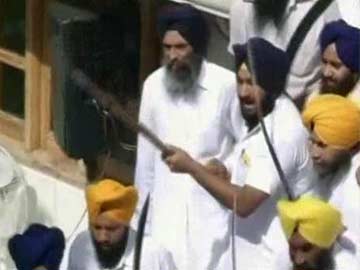CHANDIGARH: Twelve years after marrying a US citizen, Sarabjit Singh, a resident of Ferozepur district, learnt that his marriage was not void. In an order with huge ramifications, especially on Punjabi youths marrying foreign nationals, the Punjab and Haryana high court has held that a marriage solemnized by a youth with a foreigner woman as per Sikh ceremonies is null and void if it is not registered under the Special Marriage Act.
A division bench headed by Justice S S Saron passed these orders on May 2, after hearing a petition filed by Sarabjit who had married California-based woman Lourdes Serrato in 2000 as per Sikh rites and now wanted to annul it on the ground of cruelty by his estranged wife
Sarabjit and Lourdes were married on May 8, 2000 at Mudki village of Ferozepur. Lourdes was living in California and came to India with her family for the marriage. The marriage was solemnized with the consent of parents of both parties as per the Sikh ceremonies.
According to Sarabjit, both of them lived together at Mudki, but Lourdes left for California after 20 days of marriage and declared her intention of not coming back as she was married without her consent.
In his plea, Sarabjit stated that he tried his best to bring his wife back, but when all efforts failed, he filed a divorce petition at a Ferozepur court on March 7, 2012. On December 10, 2013, the court dismissed his petition saying, "Sarabjit's move to approach for divorce after a prolonged silence of 12 years does not inspire confidence of the court."
Sarabjit approached the high court. Hearing the petition, the high court noticed that Sarabjit was mentioned as "Sikh Unmarried" and the wife as "Christian Unmarried" in documents prepared by them before performing their marriage as per the Sikh ceremonies. Finding the matrimonial alliance between the two parties as "no marriage in the eyes of law," HC held that the Ferozepur court should have dismissed the divorce petition on the ground of maintainability.
HC clarified that marriage performed under Sikh rites is covered under the Hindu Marriage Act (HMA). The court said as per the HMA, both parties should be Hindus, Buddhists, Jains or Sikhs by religion, and if they are not, the marriage is void.
with thanks : Times of India : LINK


































